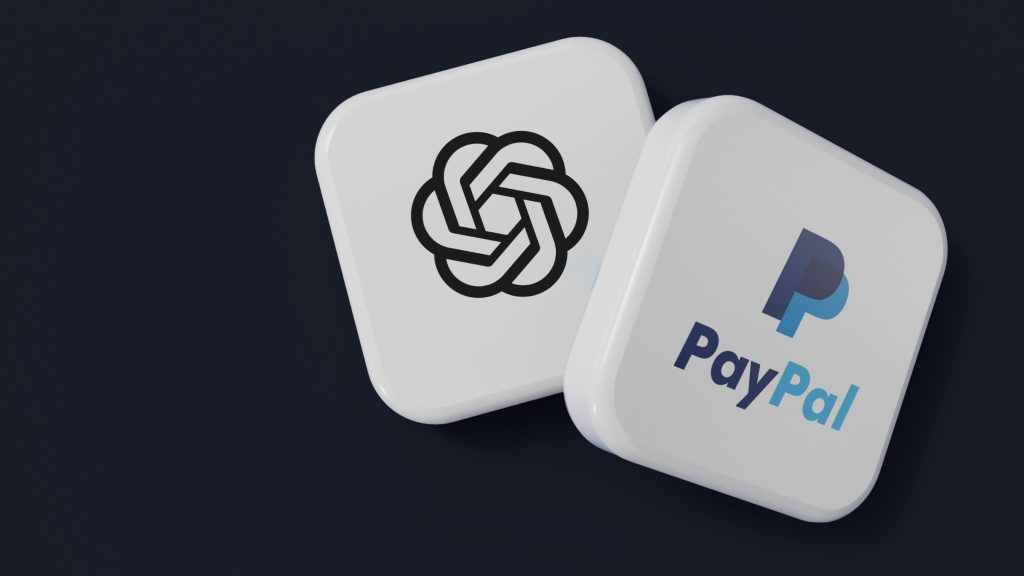
On October 28, PayPal announced its partnership with OpenAI in San Francisco, making it the exclusive payments processor for the AI giant, instantly embedding the payment platforms’ financial infrastructure into millions of AI conversations and agentic commerce transactions, PayPal exclusively told CNBC.
The collaboration will officially launch in 2026, allowing PayPal’s hundreds of millions of wallet users to purchase products through an AI shopping assistant within ChatGPT and allowing merchants to sell through the app without separate integrations.
Sealed over the weekend, the aggressive move by both companies sent PayPal’s shares up by over 9% in early US trading.
The landmark deal could create a closed-loop financial ecosystem, where PayPal could solidify a new tech finance axis, betting its future on AI agentic commerce becoming the primary interface for all digital spending.
Experts believe this will force consumers and merchants onto PayPal’s platform, stifling competition, and immediately raise antitrust concerns over its potential to monopolize all spending within AI assistants.
AI Powered Commerce PayPal
The agreement makes PayPal a cornerstone in OpenAI’s vision for AI conversational commerce, a new phase of AI-driven shopping where virtual assistants help users find and buy products conversationally.
“Hundreds of millions of people turn to ChatGPT each week for help with everyday tasks, including finding products they love, and over 400 million use PayPal to shop,” said President and CEO of PayPal, Alex Chriss.
What Is Agentic Commerce and Why Does this Matter?
Agentic commerce is a new tool used to help users shop smarter and more efficiently.
By adopting the Agentic Commerce Protocol (ACP), PayPal will power transactions for OpenAI’s Instant Checkout feature, giving consumers the ability to “go from chat to checkout in just a few taps.” Chriss emphasized.
“We’ve got hundreds of millions of loyal PayPal wallet holders who now will be able to click the ‘Buy with PayPal’ button on ChatGPT and have a safe and secure checkout experience.”
Under this smart agent commerce partnership, PayPal will manage the backend infrastructure including merchant routing, payment validation, and orchestration so sellers can list products without registering directly with OpenAI. This will create what the company calls “a platform for tens of millions of small businesses and the largest brands in the world to sell within ChatGPT.”
PayPal announces agentic commerce initiatives along with signature consumer protections buyer and seller safeguards, payment tracking, and dispute resolution alongside multiple funding options such as linked bank accounts, balances, and credit cards. Chriss highlighted the trust element, stating that, “It’s not just that a transaction can happen. It’s that this is a trusted set of merchants… verified, with the largest set of verified consumers in a consumer wallet.”
Conversational Commerce AI and Market Growth
Beyond AI conversational commerce, the partnership deepens PayPal’s use of OpenAI’s technology internally. The fintech giant is strengthening access to ChatGPT Enterprise and tools like Codex for its employees that are over 24,000 to accelerate product development and enhance customer experience.
Meanwhile, the collaboration comes as PayPal continues to strengthen its AI-driven checkout upsell solutions for increasing average order value and its position in the AI and fintech world. It has recently inked deals with Google and Perplexity AI to establish itself as a central player in next generation digital payments.
“It’s a whole new paradigm for shopping,” Chriss said. “It’s hard to imagine that agentic commerce isn’t going to be a big part of the future.”
The AI-powered autonomous shopping platforms announcement coincided with PayPal’s strong third quarter (Q3) results. The company reported adjusted earnings per share of $1.34, beating estimates and revenue of $8.42 billion, driven by a 5.9% rise in transaction margin dollars to $3.87 billion.
Boosted by these results, PayPal raised its direct sales software annual earnings forecast to between $5.35 and $5.39 per share and approved its first ever quarterly cash dividend of $0.14 per share, payable on December 10.
Analysts at Wolfe Research noted that while PayPal’s move was monetizing interactions and “constructive,” other payment providers are expected to follow suit, describing partnerships with OpenAI as “table stakes for the industry.”
As PayPal positions itself at the heart of AI powered digital transactions, its collaboration with OpenAI marks a major leap toward transforming ChatGPT from a conversational tool into a global agentic commerce hub one chat at a time.
Inside Telecom provides you with an extensive list of content covering all aspects of the tech industry. Keep an eye on our Intelligent Tech sections to stay informed and up-to-date with our daily articles.